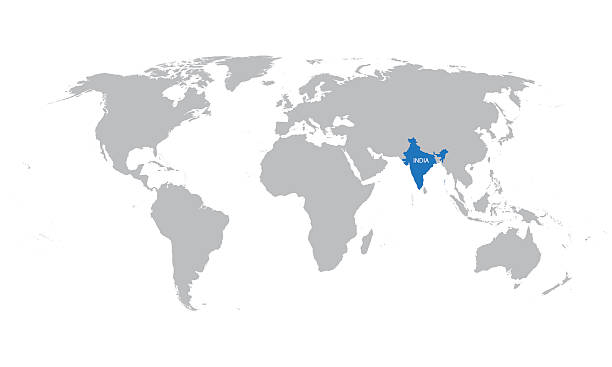I first came to know about O.P. Jindal Global University as a 10th grader when the Vice Chancellor visited our school for a session introducing the relatively new institution to the batch. Little did I know that, in the near future, the very institution was going to drastically change the course of my life.
As an 18-year-old, I was like any other high school student, unsure and anxious yet hopeful, and I researched deeply about institutions offering the perfect combination of academic and co-curricular opportunities. As I was sure about pursuing Economics at the undergraduate level, my aim was to find a programme that would integrate real-world problems and pressing issues into the curriculum, preparing me equally for both the job market as well as graduate studies. After going through the curriculum and interacting with admissions team, I found the programme and the University to be a great fit. I would be lying if I said that JSGP was my first preference for my undergraduate studies. However, choosing to pursue the BA (Hons.) Economics programme from JSGP has turned out to be one of my best decisions, both at a professional and personal level.
The admission process consisted of 3 stages – the online application, JSAT (Jindal Scholastic Aptitude Test), and the Personal Interview. The process was smooth and the admissions team was extremely helpful throughout the process. While the first two stages determined a student’s general aptitude and performance in high school, the interview stage was more focussed on the programme that I applied to. During the interview, I was asked questions related to my subject and was also assessed on my general awareness, for instance, as an aspiring Economics student, I was expected to know about the economic environment in the country and across borders.
Based on the overall performance across the three stages, I was offered admission to the programme and was also awarded the Savitri Jindal Studentship to pursue the same. Many such scholarships are available to deserving students while applying to the programme and some scholarships may also be awarded to students during the course of the programme, based on their academic performance.
From Day 1 to the last day of our degrees, the University made every effort to make us feel comfortable academically and personally. Life as a student at a fully residential campus can be very different and overwhelming for a lot of students right out of school. Therefore, to make freshers comfortable with the campus life and the student code of conduct, the University organises a programme called the “Buddy Project”. The programme follows the concept of assigning a “buddy” to every new student to help them with anything and everything concerning campus life, initial registrations, hostel allocation, connecting with immediate seniors, and other essential processes before classes commence. The same support is continued in the form of a mentor-mentee programme where both, senior students and professors are assigned as mentors to a small group of students from the same programme.
The programme was well-designed and balanced. The first 2 years of the programme focussed on fundamental and core concepts in economics with subjects like Microeconomics, Macroeconomics, Mathematics, Statistics, Econometrics, Game Theory, Development Economics, etc. In the 5th and 6th semesters, we were then given an opportunity to opt for electives of our choice from not only within our school but from across the different schools of the University. This gave us the opportunity to combine two or more disciplines and to explore various different fields of study. As a result, after building a foundation in topics under economics and economic tools, we could design our programme based on our areas of interest.
Class-room teaching combined theory with real world applications to introduce us to new concepts. We were encouraged to learn the significance of every tool learnt in class and no single method was being followed to teach or assess the students across the courses. The curriculum was flexible and the professors accommodated the students’ academic requirements over the course of the programme. Assessments were interactive and engaging, using methods like group and individual presentations, and research papers in addition to written assessments.
While many struggled to cope with the pandemic, our University handled the situation very well. Our study material, as well as assessment methodology, to fit the unprecedented circumstances. The professors communicated well with the students and made sure that no student fell behind due to the change in course delivery. Our professors put extra effort to make online teaching more interactive and were open to suggestions to improve the teaching-learning experience.
The most important factor that made my experience at JSGP worthwhile was the teaching faculty. They patiently taught us each and every concept and went out of the way for those who could not cope up with the classes. In addition to regular office hours and tutorials for any doubts we may had, we could contact the professors for an individual appointment if we needed their support and guidance. Our professors encouraged us to learn beyond the text, acquire market relevant skills, and to always ask questions. Over the course of my undergraduate studies, the faculty not only helped me understand the course material but also contributed towards my growing interest in the subject.
This encouraged me to be a part of various academic projects, on and off campus. In my first semester, I volunteered at the World Wildlife Fund (WWF) as a Data Researcher, where I applied the data collecting and cleaning skills acquired so far. I also applied to one of the most competitive policy research internships in India back in 2019, Researching Reality at the Centre for Civil Society (CCS). The internship provided rigorous training in areas of quantitative and qualitative research, methodology, data analysis, and critical thinking and contributed immensely towards my personality. As an outcome of the internship, I also co-authored a research paper published in the CCS handbook, Anatomy of K-12 Governance in India- Evidence from States on Regulation of Private Schools. Additionally, to gain policy research experience while working in the public sector, I interned at the National Commission for Protection of Child Rights in my second year.
By the time I started my final internship, I was already confident about working in a team and leading projects. As a Summer Trainee at Grant Thornton Bharat LLP I supported various public sector skilling projects in India, including a state corporation’s World Bank funded skilling project. Having already acquired the relevant soft skills, data analysis and presentations tools, I was confidently able to contribute to the team’s work and was soon offered a full time role as a Pubic Sector Associate, working as a Consultant with the Project Management Unit (PMU) of India’s 1st government skill University – Shri Vishwakarma Skill University (SVSU), Haryana. This role introduced me to standard operating procedures and implementation strategies of developmental projects in India and the world, adding to my profile as an aspiring development professional.
In addition to off-campus projects, the school provided us with various on-campus academic as well as co-curricular opportunities. In my final year, I was offered to be a Teaching Assistant for the Statistics 1 course. My role required me to provide assistance in preparing course material and conducting office hours and I was also provided a stipend for the course of my TA ship. Furthermore, I briefly also contributed to a research project as a Research Assistant to a professor in the University, conducting literature searches and reviews to study Internal Migration in India.
While academic projects helped me enhance various tangible skills, the appetite for staging and managing events allowed me to go above and beyond the classroom to satisfy my queries and interests within sports and culture. I worked alongside teams in different capacities to organise sports events (as a Co-chair for Women’s J-league – women’s football league), food-fests, and cultural events, while playing an instrumental role as a core-member of the Rotaract Club in setting-up blood donation camps in the University, free-of-cost-health camps near the college campus, and revamping the infrastructure of a nearby government school, to name a few. Combining academics with co-curricular projects, I also co-chaired the annual Economics and Public Policy fest of the University – Youthopia 2020, having already been a part of the same as the social media head in 2019.
My passion for working behind the scenes has introduced me to people, perspectives and experiences from diverse backgrounds. The values of perseverance, commitment and work ethic that I have gained from these engagements have not only helped shape my personality but have also given me the confidence to envision myself contributing to some of the development projects that I hope to work on, going forward. Before I even graduated, my internships, along with such on-campus engagements had already prepared me for a professional working environment. Regular in-class presentations, group work, and co-curricular projects over the three years had transformed me into a more confident individual who could not only work in a team but also take initiative and lead projects.
Such projects helped add to my profile for both a job and a master’s degree. While my first preference was to pursue higher studies, given the uncertain environment during our graduation, I also applied to various roles in India that suited my interests and profile. Once again, my professors provided me with all the help and support they could offer, from helping me better present my achievements and projects in my CV to guiding me through my master’s applications. With such support and guidance, I cleared the first round of the prestigious Rhodes Scholarship in 2021. Our Vice Chancellor and JSGP Dean, both being Oxford University Alumni and Rhode Scholars, generously helped me prepare for the interview round, personally giving me their time and conducting mock interviews. While I unfortunately could not proceed to the next stage of the Scholarship process, I gained a lot throughout the course of the application and am ever so grateful for the support, time, and kind words of the faculty, Dean, and Vice Chancellor.
Constant support from the JSGP faculty and staff helped me acquire admission to multiple target programmes and Universities. I applied for a master’s programme over two academic years – 2021-22 and 2022-23 and secured admission to eminent schools such as Sciences Po, London School of Economics and Political Science, Geneva Graduate Institute (IHEID), National University of Singapore, and to the Erasmus Mundus Joint Master Degree programme. After having worked at Grant Thornton Bharat LLP for almost a year, building on my skills and profile, I have been offered two scholarships, for the academic year starting 2022-23, to pursue graduate studies in Europe – The Eiffel Excellence Scholarship (Sciences Po) and the Erasmus+: Erasmus Mundus EMJMD Partner Country scholarship (full scholarship) for the two-years duration of the EMJMD QEM programme.
Having consulted my seniors, peers, and professors, I have accepted the offer of admission to the Paris School of International Affairs, Sciences Po for the Master in International Economic Policy programme along with the French government scholarship (The Eiffel Excellence Scholarship). I will be joining the programme starting August 2022.
When I think of my journey post high school, I owe my achievements so far to the faculty of the Jindal School of Government and Public Policy. Words can’t express my gratitude to the professors who took out the time to discuss career prospects, guided us through scholarships and job opportunities, and provided me with multiple recommendation letters over the three years of my degree and two years of my master’s application. While individual efforts and motivation are important factors, a stimulating and supportive environment can help one go beyond their comfort zone and explore their capabilities. That is what the school and the faculty did for me.
I can, without a doubt, say that I am now a better version of myself – more confident and dynamic. I graduated from JSGP as a transformed person, with a lifetime of learnings, memories, and friendships. “Take JSGP out of the equation and the math just fails”.





